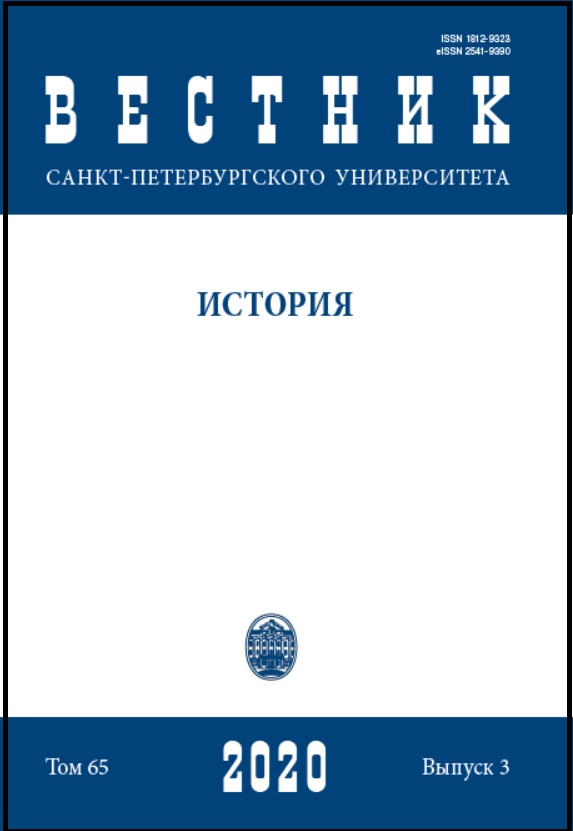Scandinavian component in Anglo-Saxon and Norman Identities
DOI:
https://doi.org/10.21638/11701/spbu02.2020.320Abstract
The article provides an analytical review of contemporary British historiography in the field of Anglo-Saxon and Norman ethnicity. On the one hand, modern scholars shift the focus on periphery and frontier regions of the kingdoms of Scotland and England and the Duchy of Normandy; on the other hand, the concept of “Atlantic archipelago” emphasizes the specificity of insular variant of ethno-political development. The phenomenon of “the Norman world”, encompassing whole communities and territories inhabited by the Normans, is a fertile ground for realization of such “regional” approach. Both its strengths and limitations we see in the fundamental study “Heirs of the Vikings: History and Identity in Normandy and England, c.950 − c.1015» by Katherine Cross. She demonstrates that the denotation of the term “Norman” was not stable, and its interpretation was determined by the historical memory of a concrete region or community. Comparing two regions where, on the one hand, a complex ethnic landscape had been preserved by the 10th-11th centuries, and where, on the other hand, centralizing tendencies of the ambitious ruling dynasties had been developing, K. Cross seeks answers to the question “Why and how did Viking identity come to mean different things in England and Normandy?” The comparative approach to exploring Norman and English identities chosen by the author is realized exclusively on the basis of textual evidence: genealogies, ethnogenetic narratives, hagiography and charters. The analysis of “ethnic” discourse of the sources carried out by K. Cross is a vital, yet intermediate step towards a more fundamental debate.
Keywords:
Anglo-Saxon, Norman, Viking, Identity, Ethnicity, Historiography
Downloads
Downloads
Published
How to Cite
Issue
Section
License
Articles of "Vestnik of Saint Petersburg University. History" are open access distributed under the terms of the License Agreement with Saint Petersburg State University, which permits to the authors unrestricted distribution and self-archiving free of charge.





